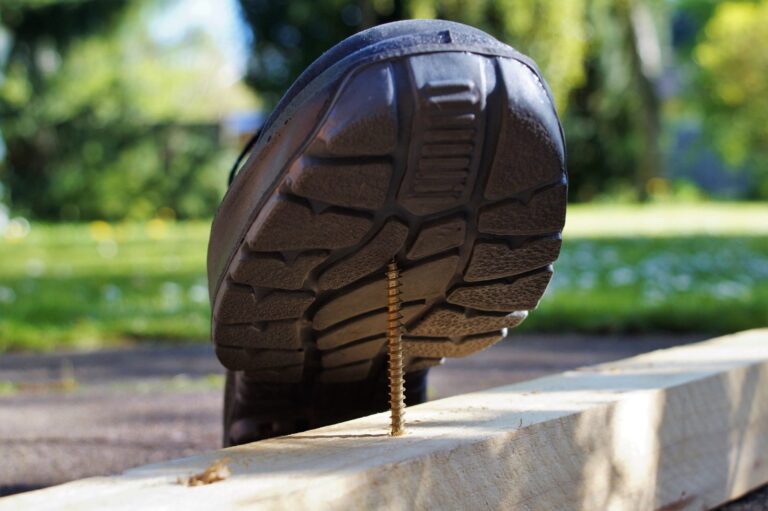Getting hurt on the job, whether on a construction site off I-70, in a warehouse near the Denver Tech Center, or while making deliveries along I-25, can leave you with more questions than answers. Maybe you’ve already filed a workers’ compensation claim, or maybe you’re unsure whether you even qualify. What many people don’t realize is that in some situations, workplace injuries can lead to a lawsuit outside the workers’ compensation system.
At the Law Offices of Dianne Sawaya, we’re here to help you understand all your options, including potential civil claims. If someone else’s carelessness caused your injury, you may be entitled to more than what workers’ comp alone offers.
What Is Workers’ Compensation in Colorado?
Workers’ compensation is a no-fault insurance system that provides medical care and partial wage replacement if you’re injured on the job. In Colorado, nearly all employers are required to carry workers’ comp insurance, even for part-time employees.
You don’t have to prove anyone was at fault to receive benefits, but you do need to report your injury promptly and follow the proper procedures. Benefits may include medical treatment, temporary wage replacement, and permanent impairment payouts. If your claim is delayed, denied, or undervalued, we can step in to help make sure you’re receiving the full benefits you’re owed.
When a Work Injury Becomes a Civil Case
Not all work injuries are limited to workers’ comp. In some cases, you may be able to file a personal injury lawsuit on top of, or instead of, a workers’ compensation claim.
That might apply to you if:
- A third party (like a contractor, property owner, or delivery driver) caused your injury
- Faulty equipment, defective tools, or unsafe machinery played a role
- Your employer acted with clear disregard for your safety
These cases are more common than many people think. From subcontractor accidents at Red Rocks to unsafe equipment at ski resorts in Summit County, we’ve seen how third-party negligence can lead to serious harm.
We’ll review the facts and determine whether you can take legal action beyond workers’ comp. You deserve to know every path available for holding the right party accountable and getting full compensation.
Civil Lawsuits vs. Workers’ Compensation Benefits
Workers’ comp is meant to help cover your medical bills and lost wages. But it has limits. It doesn’t pay for your pain, emotional distress, or the full value of your lost income.
A civil personal injury lawsuit can help you recover:
- All lost wages and future earning potential
- Pain and suffering
- Loss of enjoyment of life
- Punitive damages (in rare cases involving reckless or intentional conduct)
We’ll help you understand the differences and whether you have grounds to seek additional compensation outside of workers’ comp. If you do, we’ll pursue it aggressively on your behalf.
Colorado Workplace Safety Laws
Colorado law requires employers to provide a safe workplace and follow OSHA guidelines. That includes:
- Posting visible safety rules and injury logs
- Ensuring proper training and supervision
- Supplying and maintaining protective equipment
- Promptly addressing known hazards
When these standards aren’t followed, it increases the risk of injury and may give you grounds for legal action. If we see signs that your employer or a third party ignored safety requirements, we’ll use that information to strengthen your case.
How We Investigate a Work Injury Claim
Every injury has a backstory. That’s why we start with a thorough investigation.
We’ll gather:
- Witness statements
- Photos and videos of the scene
- Safety manuals, inspection logs, or training records
- Medical documentation
- Any communication related to complaints or hazards
These details help us identify whether someone outside of your employer is legally responsible or whether gross negligence played a role. You don’t have to collect this evidence alone. We’ll do the heavy lifting, and you can focus on healing.
Protection Against Retaliation
Worried your employer might fire or punish you for filing a claim? That’s against the law.
In Colorado, it’s illegal for your employer to retaliate against you for reporting a workplace injury, filing a workers’ compensation claim, or cooperating in an investigation.
If you’ve already faced retaliation, we can help you take legal action. If you haven’t but you’re concerned, we’ll advise you on how to protect your job while asserting your rights. You shouldn’t have to choose between your recovery and your paycheck.
What You Should Start Documenting
Good records can make or break a case. If you were hurt at work, start saving:
- The report you made to your employer
- Medical treatment records
- Any photos or videos from the scene
- Names of coworkers who saw what happened
- Your pay stubs and missed work records
Even if you’re missing a few items, that’s okay. We’ll help track down what you need and fill in any gaps. The sooner we get involved, the more we can do to support your case.
Contact Our Experienced Denver Workplace Injuries Attorneys
You don’t have to figure this out alone. At the Law Offices of Dianne Sawaya, we help injured workers across Colorado get the care and compensation they deserve, whether through workers’ comp or a civil lawsuit. We’ll give you straightforward answers, walk you through your options, and fight for your recovery. We represent injured workers throughout the Denver metro area and beyond—from Aurora to Lakewood, Boulder to Castle Rock. Call us today for a free consultation. Let’s take the next step together.

